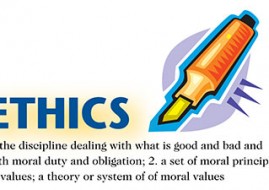Disqualification Denied Again: “Amazonas” Case
By Hal R Lieberman [Originally published in NYPRR July 2001]
The usual context for asserting a disqualification motion is an alleged conflict of interest pitting the lawyer’s current client against another current or former client. In a series of three articles written for NYPRR, Professor Roy Simon has aptly described the increasing reluctance of the local federal courts to disqualify counsel, even when the court finds noncompliance with established ethical standards, including in circumstances involving conflicts. [See, Universal City Studios, Inc. v. Reimerdes, 98 F. Supp. 2d 449 (S.D.N.Y. 2000); Simon, “Growing Trend Against Motions to Disqualify,” NYPRR, Nov., Dec. 2000, and Jan. 2001.]
An interesting example of this trend arose in the consolidated cases of The European Community v. RJR Nabisco, Inc., et al. and Dept. of Amazonas et al. v. Philip Morris, Inc., et al., 134 F. Supp. 2d 297 (E.D.N.Y. 2001) [the Amazonas cases]. In the second of these cases, certain political subdivisions of the Republic of Colombia brought an action against an array of tobacco companies alleging a conspiracy to smuggle cigarettes into Colombia, thereby avoiding various taxes and duties.
Defendants moved to disqualify plaintiffs’ counsel in Amazonas on the novel theory that several provisions in the plaintiffs’ retainer agreement contravened ethical requirements, thereby purportedly “invalidating” the representation and compelling the disqualification of counsel. The defendants alleged that the retainer agreement violated the ethical rules in the following respects:
(1) The costs covered by the Attorneys encompass all costs and expenses of litigation, including the costs of an investigation firm which had been hired and the fees of additional attorneys.
(2) The client bears no responsibility to repay the expenses assumed by counsel unless there is a recovery in the lawsuit, in which case the expenses will be paid from the recovery.
(3) The attorneys guarantee payment of other expenses that may arise in connection with the litigation against the tobacco companies, including any court order to pay Defendants’ attorneys’ fees and costs, and any judgment in a counterclaim brought against the client for defamation, libel or slander or for the abuse of the right to sue, and the costs of defending such a counterclaim.
(4) [The plaintiffs’ law firm] is to receive from the client a contingency fee of three percent, and its expenses during the pendency of this litigation are to be paid by the attorneys.
(5) The client is required to maintain the confidentiality of information provided by the attorneys, which is designated as the property of the attorneys.
(6) The client cedes to the attorneys control over certain aspects of the strategy to be implemented in conducting this and other, related litigation, grants the attorneys the right to withdraw in the event that the client fails to cooperate substantially with the attorneys in prosecuting the action, and agrees not to interfere with the attorneys’ defense of any counterclaim brought against the client in connection with this case.
Defendants Cite Threat of Potential Conflict
The motion to disqualify was referred by Judge Garaufis to a Magistrate Judge. At oral argument before the Magistrate Judge, counsel for the movants argued that the retainer agreement contained within it the threat of a potential conflict of interest between plaintiffs’ attorneys and their clients. To illustrate the threat of potential conflict implicit in the retainer’s indemnification provisions, defendants posed the following hypothetical:
Mr. Rolfe: Six months, a year down the road, let’s assume that the judge incorrectly decides not to dismiss this case and there’s a settlement offer put on the table and it’s a very low settlement offer, but it says to the lawyers, gentlemen, we are prepared to drop our lawsuit in Colombia if you accept our settlement offer. The lawyers may very well think this is a real good deal here because we get out from under the problem in Colombia.
Contrariwise, there is a big offer but it doesn’t let the lawyers out of the suit in Colombia and the lawyers say to their clients, this is not a good enough offer. You’ve got to get out from under the suit in Columbia. The reason that that’s a problem is because there’s a conflict. There’s a direct conflict between the interests of the lawyer and the interests of the client. That exists right now. That doesn’t just exist if a suit is brought. That exists right now.
The Court: Can you explain that to me? Why does it exist right now?
Mr. Rolfe: Because you can’t wait six months and say, when the process of this case has run its course, now that you’ve brought a lawsuit, there’s a client. I’d file tomorrow. Then they’d be put in a problem.
The Court: That may be so but it hasn’t happened yet. Maybe you need to go file that lawsuit.
Predictably, neither the Magistrate nor the District Court bought defendants’ arguments. In essence, the Court said: at the present time there is no concrete evidence that plaintiffs’ counsel is impermissibly conflicted. Even if the retainer provisions violate a disciplinary rule, or give rise to an “appearance of impropriety,” there is an insufficient basis to disqualify counsel, at least in the Second Circuit. In other words: We don’t care; raise the matter elsewhere. Specifically, the Court said:
…Even crediting the contention that the agreement to indemnify the Plaintiffs in the event of a suit against them for libel, slander or abuse of the right to sue could generate a conflict at some point in the future, this hypothetical possibility does not threaten the integrity of the judicial process…
In its ruling, the Court cited Board of Education v. Nyquist [590 F.2d 1241, 1246 (2d Cir. 1979)], which distinguished between situations which require disqualification — those in which ethical violations directly “taint” the proceedings (e.g., by providing one side with unfair access to the other side’s confidences or secrets) — and situations in which an arguable transgression of ethical boundaries does not create “a substantial threat to the integrity” of the judicial process:
[w]ith rare exceptions, disqualification has been ordered only in essentially two kinds of cases: one, where an attorney’s conflict of interest in violation of Canons Five and (or) Nine of the Code of Professional Responsibility undermines the court’s confidence in the vigor of the attorney’s representation of its client. Or, more commonly, two, where the attorney is at least potentially in a position to use privileged information concerning the other side through prior representation, for example in violation of Canons Four and Nine, thus giving his present client an unfair advantage. [Dec. 21, 2000 Tr. 92 (Nyquist, 590 F.2d at 1246).]
The general policy now emerging in the Second Circuit of nonintervention in ethics disputes except to prevent “trial taint,” however that term is defined, makes sense to this observer. Trials are not the best context in which to sort out complicated issues of professional conduct. Furthermore, many motions to disqualify counsel are interposed only for tactical purposes, or at the last minute, or simply to harass the opposing party, and are rightly rejected on those grounds.
Additionally, free choice of counsel is a fundamental right that ought to be accorded a very high priority in the balancing of equities, and courts are properly reluctant to interfere with a party’s choice of lawyer except in clear situations where the integrity of a proceeding is likely to be jeopardized.
The Amazonas court simply disagreed with defendants’ contention that the retainer agreement amounted to champertous inducement, or that the fee agreements gave rise to a conflict that would truly “taint” the proceeding as a matter of substance (as opposed to appearance). This result is in sharp contrast to the probable outcome in jurisdictions such as the United States Court of Appeals for the Fifth Circuit, which has effectively directed the District Courts there to police the bar for ethical violations without regard to whether such breaches may actually undermine the integrity of a proceeding. [See, In re American Airlines, Inc., 972 F.2d 605, 611 (5th Cir. 1992).]
It seems to me that the right balance is struck by the Restatement of the Law Governing Lawyers, Chapter 1, §6, Comment i; which provides, in pertinent part:
Disqualification draws on the inherent power of courts to regulate the conduct of lawyers as well as the related inherent power of judges to regulate the course of proceedings before them and to issue injunctive and similar directive orders. Disqualification, where appropriate, ensures that the case is well presented in court, that confidential information of present or former clients is not misused, and that a client’s substantial interest in a lawyer ‘s loyalty is protected. In most instances, determining whether a lawyer should be disqualified involves a balancing of several interests and is appropriate only when less intrusive remedies are not reasonably available.
Hal R. Lieberman, a partner in the New York office of Edwards & Angell was formerly Chief Counsel to the First Department Disciplinary Committee and teaches legal ethics at Brooklyn Law.
DISCLAIMER: This article provides general coverage of its subject area and is presented to the reader for informational purposes only with the understanding that the laws governing legal ethics and professional responsibility are always changing. The information in this article is not a substitute for legal advice and may not be suitable in a particular situation. Consult your attorney for legal advice. New York Legal Ethics Reporter provides this article with the understanding that neither New York Legal Ethics Reporter LLC, nor Frankfurt Kurnit Klein & Selz, nor Hofstra University, nor their representatives, nor any of the authors are engaged herein in rendering legal advice. New York Legal Ethics Reporter LLC, Frankfurt Kurnit Klein & Selz, Hofstra University, their representatives, and the authors shall not be liable for any damages resulting from any error, inaccuracy, or omission.
Related Posts
« Advance Fee Retainers: Should We Change Rules? More Light on ‘No-Contact’ Rule »













